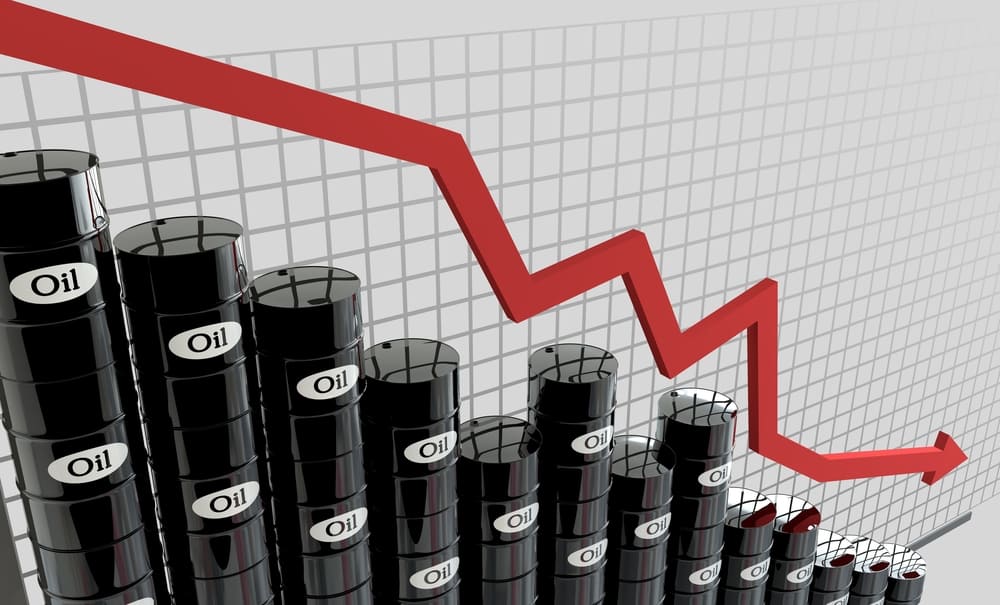
The oil prices have fallen over the last one month, triggering concerns across OPEC as this could be the beginning of a downturn. Though the Iranian standoff and the Venezuelan economic crisis did contribute to reduction in supply early this year, increase in production by both Russia and Saudi Arabia has given the market a lot more supply than it bargained for. Add to this, the record shale oil production from the U.S., the prospect of oil prices tanking might seem like a possibility.
To stem the rot, Saudi Arabia and Russia are exploring the idea of reducing production next year. But this reversal in standpoints from the OPEC could be a cause for concern. It has not been long since the OPEC states reassured the market that they would keep production levels higher than usual to counter any supply shortfalls in the future, but they have quickly changed their tune to thinking of cutting production right now. This move would only create more price volatility in an already hard-to-predict market.
Did you know?
Merrill Lynch’s BofA Merrill Lynch Truckload Diffusion Indicator, which estimates shippers’ demand for the next three months, was up slightly in its latest publication. But it had been down significantly in the prior issuance two weeks ago, and it’s now down 20% year-on-year. The most recent index number of 58.3 is the fifth consecutive year-on-year decline for the benchmark, which is published every two weeks.
Quotable:
“The sanctions are affecting how companies operate in Iran. We are working to mitigate those effects so that we can continue to serve the basic needs of people in Iran.”
– spokesperson from Nestlé, on problems the company faces due to the U.S. sanctions on Iran. Nestlé employs about 800 people in Iran and operates two factories producing infant cereals and water.
In other news:
Will China continue its Canadian crude buying spree?
Chinese refiners have been buying a lot of Canadian crude oil in the last couple of months, taking advantage of the massive discount of Western Canadian Select to West Texas Intermediate. (Oilprice)
Federal judge blocks Keystone XL pipeline permit
A federal judge in Montana blocked the Trump administration’s permit allowing the Keystone XL pipeline and barred any construction of the long-delayed project until completion of a supplemental environmental review. (Wall Street Journal)
British forwarders see demand increase during usually slow time of year
The United Kingdom-based logistics community is experiencing the first subtle waves of the disruptions to the supply chain sure to come with Brexit. (Air Cargo World)
South Africa: trucking company defends decision to fire 300 drivers who tested positive for marijuana
South Africa based trucking company has defended its decision to dismiss 300 of its drivers who tested positive for dagga. (All Africa)
Carmakers lure ride-hailer, delivery drivers in Africa
At Suzuki Motor Corp’s showroom in the Kenyan capital, hundreds of its Alto compact cars are waiting to be collected. (Reuters)
Final Thoughts
Metro cities are witnessing a growing traffic spectacle that are turning nightmarish during peak hours. The Wall Street Journal reports that Americans spend an average of 41 hours a year in traffic at peak commuting hours, with the average midday vehicle speeds in the highly populated cities slowing down between 3.8% and 10% since 2015.
Contrary to expectations, ride-hailing services like Uber and Lyft have not reduced street clogging, but rather increased it, as apart from streamlining cab-hailing, these services ended up adding more capacity to the streets. City administrations cite ecommerce to have a sizeable effect, as cities see a surge in delivery vans catering to online shoppers. Add to this, the colonial-time city planning and narrow roads that were meant to accommodate a lot less people – we have a recipe for disaster.
Cities are fighting back, by imposing restrictions on cab movement during peak hours in downtowns, allocating specific stretches of the curb space for ride-hailing pickup and drop-off, freight delivery and short-term parking. Minor violations are more strictly looked upon and police officers are writing a lot more tickets than before to make sure everyone falls in line.










